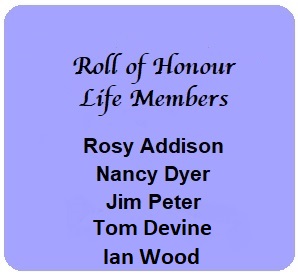***
When a few score are responsible for the control and guidance of millions, his courage must be undoubted, his word and pledge absolutely inviolate, his sincerity transparent. Frederick Lugard
The number of civil servants resident in the colonies who administered the Victorian British Empire was extremely small. In 1890 in India about 6,000 white officials ruled over 300 million indigenous people. These were greatly outnumbered by businessmen, planters and professionals who were usually more avaricious and often less honest than the official classes. Although both groups made up the British elite in the colonies, and although there was also a standing army of about 70,000 men, this article largely looks at the civil service.
The above quotation from Frederick Lugard, soldier, colonial administrator and advocate of indirect rule through local puppet elites, is both self-serving and a case of wishful thinking. As a description of the construct of masculinity among Britain’s imperial elite in the Victorian age, it is at best partial. Courage, integrity and sincerity are noble aspirations in any age and place, and there is no denying that many of these men, at least when they set off for colonial outposts, believed sincerely that this was what being British was about. But even the idealists carried far more ideological baggage with them than these three virtues.
What was this masculinity that was so highly regarded in middle and later nineteenth-century Britain, those characteristics described approvingly by Rudyard Kipling, E.M. Forster, Alfred Lord Tennyson and Henry Rider Haggard, and mercilessly lampooned in the Flashman novels of George MacDonald Fraser? It can be observed in a famous work of literature – Tom Brown’s Schooldays, written by Thomas Hughes in 1857 and based on his own experiences at Rugby Public School, one of the nine “ancient” elite schools of the time where so many colonial administrators were educated. Team spirit and Muscular Christianity (mens sana in corpore sano – a healthy mind in a healthy body ) were the underlying principles informing the ethos of their education which was as much geared to character-building as gaining knowledge. This was manifested in the central importance of team sport, regarded as a small-scale version of what boys would face later in life. The following passage urging on the school team in a brutal rugby match catches the flavour of noble, brave, patriotic feelings which Hughes admired in the public schoolboys of his story:
And here they are among us. Meet them like Englishmen, you School-house boys, and charge them home. Now is the time to show what mettle is in you – and there shall be a warm seat by the hall fire, and honour, and lots of bottled beer to-night for him who does his duty. Thomas Hughes, Tom Brown’s Schooldays, p.109
The conflation of school and empire is contained in a later passage when a master claims of cricket:
The discipline and reliance on one another which it teaches is so valuable… such an unselfish game. It merges the individual in the eleven, he doesn’t play that he may win, but that his side may… Perhaps ours is the only little corner of the British Empire which is thoroughly wise and strongly governed just now. Hughes, Tom Brown, pp.351-52
Charles Kingsley, an immensely popular writer and leading exponent of Muscular Christianity, summed up the importance of sport in a self-improvement tract, listing many of the ideals which the above writers claimed for the colonial administrative elite:
Games conduce not merely to physical but to moral health; in the playing field boys acquire virtues which no books can give them; not merely daring and endurance, but, better still, temper, self-restraint, fairness, honour, unenvious approbation of another’s success, and all that “give and take” of life which stand a man in such good stead when he goes forth into the world. Charles Kingsley, Health and Education, p.42
To this list of desirable attributes should be added: modesty, independent enterprise, piety, sobriety, dedication to family, a harsh work ethic and a rejection of affectations of appearance. The majority of the public schools’ intake in the mid-Victorian period were from the new and rapidly growing upper middle class who, as part of their construction of identity, were defining themselves against a perceived decadent, idle and self-absorbed aristocracy. They were also influenced by the religious revival of the mid-century when Evangelical Protestantism was on the march. From those same ranks came the missionaries who often preceded the colonialists as the British Empire in Africa grew ever larger. However, it must be noted that not all these qualities were embraced by Muscular Christians. There was a spectrum of sensitivities and it would appear that it was the less meek who tended to venture overseas in the service of empire.
Those then were the ideals – but what was the reality? Firstly, the public schools were not disinterested institutions turning out high-minded men of honour bent only on making the world a better place. They were elitist establishments where those with plenty of money ensured that their sons were socialised into the bourgeoisie, absorbing their values and establishing vital networking connections among their peers. They made sure that each new generation was bonded to the previous ones, operating like the mafia or freemasons, and smoothed the way to lucrative future careers in banking, the professions or the upper reaches of the civil service. Sport also played a defining structural role – which schools your alma mater could compete against defined its status within this educational elite. A.N. Wilson has argued in The Victorians that the public schools served the purpose of allowing the aristocracy to remain within the governing class while co-opting the growingly powerful bourgeoisie into their ranks. This very limited social mobility actually caused the public school-educated bourgeoisie to ape the manners and adopt the supercilious attitudes which abounded in these institutions.
The values inculcated at public schools included some singularly unattractive ones, such as snobbery, bullying arrogance and racism. Another passage from Tom Brown’s Schooldays illustrates the disdain for the lower orders in British society:
His new friend [was] gifted with the most transcendent coolness and assurance, which Tom felt to be aggravating and hard to bear, but couldn’t for the life of him help admiring and envying – especially when my young lord begins hectoring two or three long, loafing fellows, half-porter, half-stableman, with a strong touch of the blackguard, and in the end arranges with one of them, nicknamed Cooey, to carry Tom’s luggage up to the School-house. Hughes, Tom Brown, p.88
When these attitudes were transported to the colonies, they were magnified. The patriotism of public schools when seen in action throughout the empire was jingoistic, xenophobic, condescending and sometimes staggeringly brutal (as for example the disproportionately murderous retribution in the wake of the 1857 Indian uprising). Among the white elite there may have been “give and take”, self-restraint and honour, and even a well-merited reputation for probity with government money and contracts. However, dealing with the “natives” was a different matter. Regarded as little better than children by intellect and savages by nature, the term “white man’s burden” was universally accepted as a description of those darker-skinned people lucky enough to be ruled over by the morally, spiritually and ethnically superior British. It is telling that the civil administrators in India referred to themselves as “the heaven born”. Catherine Hall says that the colonial elite were “a white brotherhood whose power and prestige were embedded in assumptions about the inferiority of both women and native peoples”. She cites the works of Anthony Trollope, possibly the most popular of all Victorian writers, who contrasted the energy and independence of Anglo-Saxons with the laziness and fecklessness of “coloured” races in his travel writings.
Throughout the empire casual violence was regularly meted out to native servants, employees, lawbreakers and above all anyone who tried to resist British rule, particularly in Africa and the Caribbean. A.N. Wilson sees a connection between this propensity for exemplary punishment and the “wholehearted acceptance of canings and floggings” at Britain’s public schools. The strict hierarchy of master beating pupil, prefect thrashing “fag”, and the strong bullying the weak was so rampant at these schools that it was the subject of at least one public enquiry and regularly filled the letters pages of the broadsheets in the later nineteenth century. That such practices would be carried over into an imperial rule leavened with racial hierarchy was scarcely surprising.
British power in her empire rested ultimately upon military force, but the ability of her colonial administrators to divide and rule was also critical. Rather like her foreign policy in general and military strategy in particular, Britain often financed others to wage her wars and keep subject peoples in line. From the Hanoverians fighting in the American War of Independence to the subsidies paid to maharajahs, Britain managed to avoid a great deal of land warfare throughout the eighteenth and nineteenth centuries, her military commitment principally restricted to her navy. Across the empire, potential allies were simply bought where local potentates were corrupt or venal, and carefully groomed where they were minorities at odds with the dominant power whom Britain wished to overcome. Many of these minorities displayed variants upon the ideals of masculinity which the imperial administrators believed they themselves embodied. Among these were Sikhs, Ghurkas, Bedouins and Tamils, the first three employed as soldiers, the latter imported into Ceylon (Sri Lanka) as administrators and overseers of the native Sinhalese in the tea plantations, thus sowing the seeds for later civil war in that island.
Masculinity as a social construct among the imperial administrators of the Victorian age made it easier to order “inferior” peoples around and gave its protagonists the ability to project quiet, firm authority. It was a useful tool for those who had to carry out the imperial strategy of divide and rule. It was also a form of psychological armour which made these men particularly suitable for the tasks they had to fulfil in such alien and potentially hostile environments as India, Jamaica, Malaya or Nigeria. Deep-seated self-confidence, an innate sense of superiority and a particularly effective group identity, combined with a belief that the British were the best in the world, and that they in turn were the cream of the best – this was a potent ideology which produced drive and singlemindedness, loyalty and a sense of duty. It might even be regarded as an essential job requirement, for without that thick-skinned sense of superior worth and righteousness, mental breakdown might well have been an even greater scourge in the colonial civil service than its relatively high incidence actually was.
Sources
Catherine Hall, “Going a-Trolloping: Imperial man travels the Empire” in Clare Midgley, Gender and Imperialism (1998, Manchester University Press), 180-199.
Thomas Hughes, Tom Brown’s Schooldays (1911, Harper, New York); First published 1857.
Charles Kingsley, Health and Education (2009, Echo Library, London); First published 1874.
A.N. Wilson, The Victorians (2003, Arrow, London).









